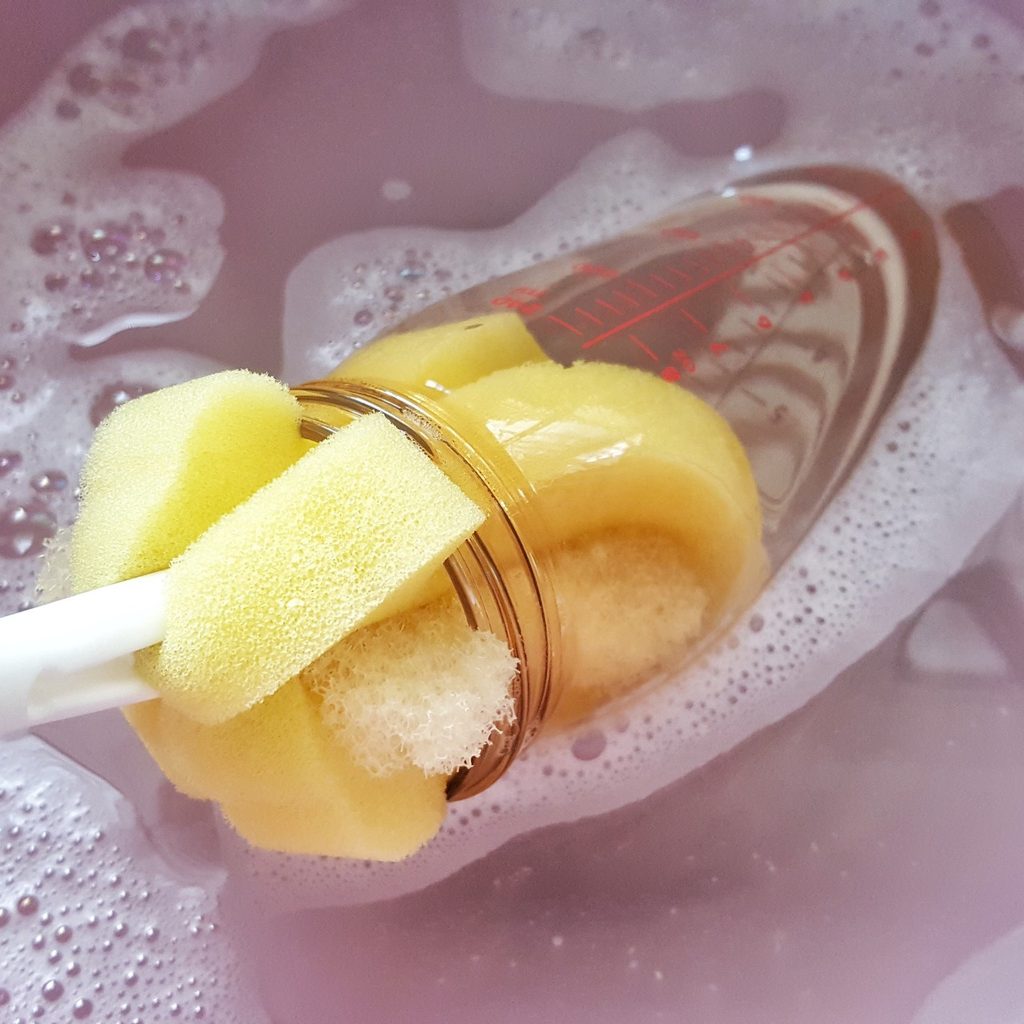Glass baby bottles have been a source of nutrition for infants going back to their inception into society in 1841. That’s right, moms have been using glass bottles to feed their babies for over 100 years. And although the practice has been dwindling in recent years – yet still surviving – a more recent influx of focus on sustainable product usage has seemed to have brought about a revamp of less popular infant care products. These products include items such as cloth diapers, glass baby bottles, and baby food makers that are utilized for their eco-friendly uses and decreased waste output.
If you are a pregnant or new mom of a formula-fed baby and have been considering implementing glass bottles with your new bundle of joy, you may be wondering what all the fuss is about, and if this product will be the right fit for you and your baby. Are glass baby bottles better? And are they worth the newly afforded hype? Can they hold up to their plastic competitors?

Are glass baby bottles better?
It’s true that when it comes to glass, babies usually don’t go hand in hand with it. One exception, however, are glass baby bottles. These items are making a comeback in a big way over the past few years. With the recent push to decrease our carbon footprint, diminish waste, and become more eco-friendly, parents have been breaking with tradition and convention. By implementing more sustainable and safely sourced products, parents are replacing those more “normalized” items with more economically centered ones to raise their children.
While there are risks involved with using glass versus plastic — such as breakage — the risks of using glass over plastic ends there. Glass bottles are more resilient to failure, making them more durable over time. This gives glass bottles a stronger value than plastic, saving you money in the long run by holding their value.
There’s WHAT growing in there?
Bacteria is everywhere. Because of its prevalence in everyday life, parents must go over and above in an effort to protect their infants from its exposure, preventing illnesses and injury. But what about the bottles their babies nurse from? Sure, cleanliness and sterilization are key elements to prevent such growths from occurring, but even the toughest scrubbing can sometimes miss things – especially when using abrasive cleaning tools such as scrubbing pads.
That being said, plastic begins to scratch after use and cleaning, creating micro-scratches in the plastic of the bottles, inside and out. These micro-scratches can quickly become breeding grounds for growing and harmful bacteria, while also being notoriously difficult to clean and sanitize. This can make it even harder to prevent exposure to your little one, without regularly purchasing new bottles and tossing the old ones after only a few uses.
Glass bottles, on the other hand, are constructed from hardened glass – just like jars used in canning — which cannot be scratched by abrasive cleaning pads or products. Because glass is more durable than plastic, bottles made from glass can be washed in high-temperature water and scrubbed clean with no worries of damaging the bottle. Additionally, glass bottles can be sterilized at higher temperatures, ensuring no bacteria can survive the sanitation process and preventing bacteria-based illnesses.

What’s the catch?
As with all products, there are some downsides to using one versus others on the market. As previously discussed, glass bottles do carry the risk of breakage. Additionally, glass bottles are much heavier than plastic, which could inhibit your baby from holding their bottle themselves — although that can vary from infant to infant. In addition, glass bottles can carry somewhat of a heftier price tag per bottle due to the expense and more difficult process of manufacturing them.
Still on the fence about which bottles to use? Here are a few more reasons to consider making the switch from plastic to glass:
- Plastic bottles, even those marked BPA-free, can still leech chemicals into your infant’s formula, especially if stored in plastic for long periods.
- Glass baby bottles can be placed into a dishwasher for high-heat cleaning and sterilizing.
- Glass bottles are more durable, making it entirely possible for parents to use them with multiple children over a longer period of time.
Whether you are looking to save a few dollars, are concerned about the earth’s climate or environmental issues, or simply want to provide your infant the greatest protection from exposure to chemicals or bacterial growth from the use of plastic baby bottles, making the change to glass could be just the tip you need to achieve those goals. Not only are they more likely to stand the test of time, but these veteran nutritional products are also much easier to care for as well, saving you precious time with your baby while keeping money in your pocket. So, forget the bottle sterilizers and hours of scrubbing and switch to an eco-friendlier and longevity-focused product. The earth and your baby will thank you for it!



